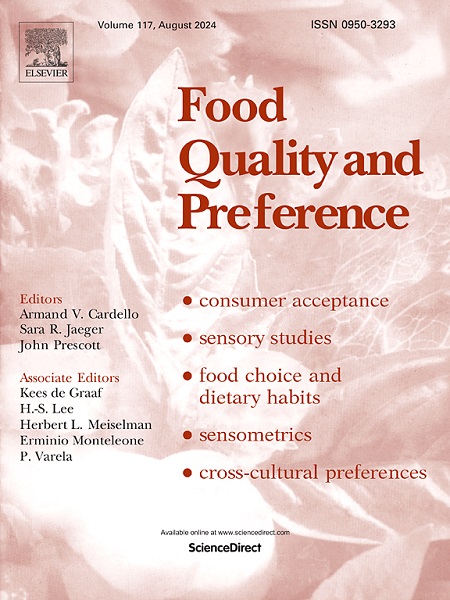Combining text mining of social media data and conjoint approach to investigate consumer choices on organic food
IF 4.9
1区 农林科学
Q1 FOOD SCIENCE & TECHNOLOGY
引用次数: 0
Abstract
The growing interest in organic food is driven by consumer concerns about the impact of conventional agricultural practices on human health, and environment. It is crucial to understand the factors that influence consumer preference of organic food. Consumer preferences for organic food has been largely investigated using traditional methods which have limitations in terms of data validity, reliability, time, and cost. This study used social media data to investigate main factors influencing consumer perceptions and preferences of organic food using X’s API. The data were analysed by text mining, and topic modelling.
The results reveal that organic production, sustainability, origin, shelf-life, and price are the five most important factors that influence consumers’ choices for organic food. Organic milk was used as the representative organic food product with attributes and levels established from the social media data analysis. A conjoint analysis was used with a sample of Vietnamese consumers. Sustainability is the most important attribute affecting organic consumer food choices followed by organic production, price, shelf-life, and origin. Segmentation analysis identified two clusters of consumers: in cluster 1 sustainability is the most importance attribute while in cluster 2 organic production is the most importance one.
In conclusion, this study underscored the potential of social media data as a valuable source for understanding consumer behaviour and preferences in the context of organic food consumption. In addition, this study emphasized the significance of sustainability as a critical attribute in consumer decision-making with lower environmental impact influencing consumers’ likelihood to purchase organic food products.
结合社交媒体数据的文本挖掘和联合方法研究消费者对有机食品的选择
消费者之所以对有机食品越来越感兴趣,是因为他们担心传统农业生产方式会对人类健康和环境造成影响。了解影响消费者对有机食品偏好的因素至关重要。对消费者有机食品偏好的调查大多采用传统方法,这些方法在数据有效性、可靠性、时间和成本方面存在局限性。本研究使用社交媒体数据,利用 X's API 调查影响消费者对有机食品看法和偏好的主要因素。结果显示,有机生产、可持续性、原产地、保质期和价格是影响消费者选择有机食品的五个最重要因素。有机牛奶作为有机食品的代表产品,其属性和等级是通过社交媒体数据分析确定的。对越南消费者样本进行了联合分析。可持续性是影响消费者选择有机食品的最重要属性,其次是有机生产、价格、保质期和产地。分类分析确定了两个消费者群组:在群组 1 中,可持续性是最重要的属性,而在群组 2 中,有机生产是最重要的属性。此外,本研究还强调了可持续性作为消费者决策中的一个关键属性的重要性,即较低的环境影响会影响消费者购买有机食品的可能性。
本文章由计算机程序翻译,如有差异,请以英文原文为准。
求助全文
约1分钟内获得全文
求助全文
来源期刊

Food Quality and Preference
工程技术-食品科技
CiteScore
10.40
自引率
15.10%
发文量
263
审稿时长
38 days
期刊介绍:
Food Quality and Preference is a journal devoted to sensory, consumer and behavioural research in food and non-food products. It publishes original research, critical reviews, and short communications in sensory and consumer science, and sensometrics. In addition, the journal publishes special invited issues on important timely topics and from relevant conferences. These are aimed at bridging the gap between research and application, bringing together authors and readers in consumer and market research, sensory science, sensometrics and sensory evaluation, nutrition and food choice, as well as food research, product development and sensory quality assurance. Submissions to Food Quality and Preference are limited to papers that include some form of human measurement; papers that are limited to physical/chemical measures or the routine application of sensory, consumer or econometric analysis will not be considered unless they specifically make a novel scientific contribution in line with the journal''s coverage as outlined below.
 求助内容:
求助内容: 应助结果提醒方式:
应助结果提醒方式:


